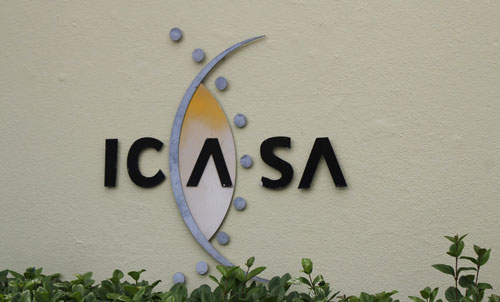
Neotel and Vodacom have called on their regulator, the Independent Communications Authority of SA (Icasa), to scrap the universal service obligations they agreed to when they were licensed.
Instead, they want a competitive bidding process where they can tender to access money in government’s Universal Service Fund to provide services. But they don’t want to be forced to participate.
The companies’ regulatory advisers argued at hearings at Icasa on Wednesday that they should not be a last resort rather than a requirement.
Neotel, Vodacom, Cell C, MTN and Telkom have all been obliged in terms of their operating licences to provide connectivity to schools, hospitals, clinics and other facilities in underserviced areas.
Neotel’s obligations include bringing connectivity to 2 500 rural clinics and 2 500 public schools and further education and training facilities.
The company has called for smaller providers to help it roll out these services. In a bid to mitigate the costs involved in complying with the obligations, Neotel earlier this year asked the regulator to scrap its R100m licence fee.
Neotel is a special case when it comes to service obligations because it expected competition to take longer to emerge. However, the market was thrown open to new competition after Altech won its celebrated court case against former communications minister Ivy Matsepe-Casaburri.
None of the companies licensed as value-added network providers were given the same universal service obligations as the incumbent operators, despite the fact that they received similar network licences in early 2009.
And some of the incumbents have not complied fully with the requirements set out in their licences. According to documents submitted to Icasa, Vodacom was supposed to have connected 5 000 schools within eight years of it receiving its licence, but to date has only rolled services to 700 schools.
In supporting documents submitted to Icasa, Vodacom argues that when the licence conversion happened in 2009 many of the obligations fell away. It also says that in most cases, government didn’t supply the names of the schools it was supposed to connect.
Vodacom regulatory officials asked Icasa on Wednesday to scrap the obligations and allow a competitive bidding process for rural services.
They said the only obligation that should remain is that all licensed operators should continue to contribute to the Universal Service Fund.
The fund has long been a bone of contention among operators, since no one knows how much money has been accumulated. Best estimates peg the value at between R2,7bn and R3,5bn.
Neotel representatives also argued for a competitive bidding process to supply services to rural areas, saying that access to the fund could push operators to enter bids and bring services to rural areas.
Icasa is using the hearings to determine how to deal with the obligations of incumbent operators. MTN, Telkom and Cell C are due to present to Icasa on Thursday. — Candice Jones, TechCentral
- Subscribe to our free daily newsletter
- Follow us on Twitter or on Facebook




